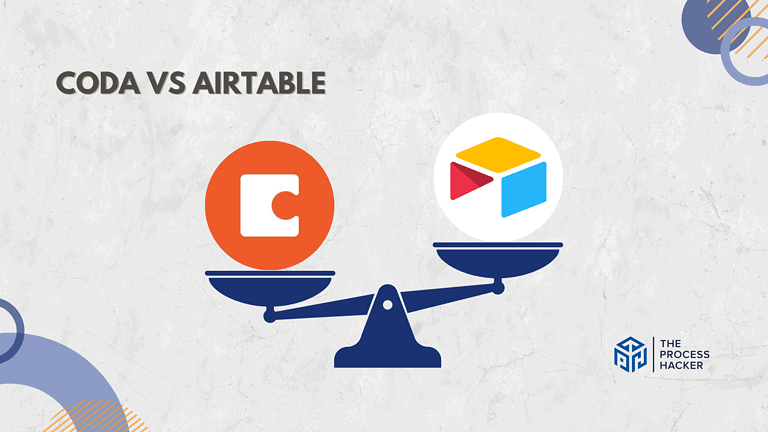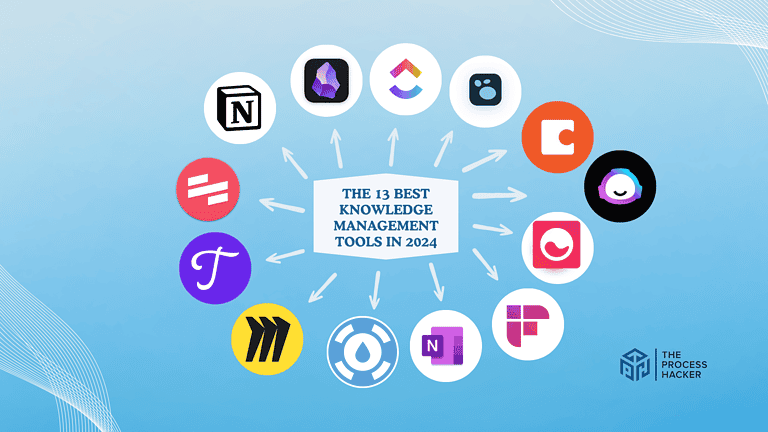How to Become a Project Manager
In our realities, the role of a project manager has become not just responsible but enriched with the smallest nuances and subtleties. This is a profession that requires a wide range of skills.
No matter what the project is about, a project manager is responsible for organizing and managing the project management methodology from start to finish, from communication to analysis.
They are the liaison between all the stakeholders and, at the same time, the manager. So, to become a person who can proudly call yourself a PM, you should know the key aspects and steps that will help you do so.
What Are Project Managers?
Project managers are the individuals responsible for guiding most projects from their initial idea (conception) to successful completion. They organize, plan, and execute the steps necessary to meet the project’s requirements while working within potential constraints like budgets and deadlines.
Why Should You Pursue a Project Management Career?
Here’s a breakdown of the compelling reasons to pursue a project management career, along with insights into whether this path might be a good fit for you:
- Job Security & Diverse Opportunities: Project manager positions require a sought-after skill set. With businesses of all sizes and sectors constantly undertaking projects, skilled project managers are in high demand, opening numerous possibilities across various industries.
- Meaningful Impact: You’ll experience the satisfaction of turning ideas into reality. Project managers see the tangible results of their work, making this career incredibly rewarding.
- Dynamic Work Environment: No two projects are ever alike. You’ll tackle exciting challenges, problem-solve creatively, and learn new things every step of the way.
- Leadership Development: Managing projects naturally builds your leadership skills. Your communication, decision-making, and ability to inspire project teams will skyrocket, making it an excellent path for career advancement.
- Earning Potential: Your salary potential increases significantly as you gain experience and certifications. Project managers enjoy competitive compensation packages.
What Are the Skills Required For Project Management?
Before we move on to how to get into project management, it is vital to identify the skills that are required for a successful career in project management. Without a doubt, the following project management skills are highly recommended:
Strong Communication Skills
This encompasses clear verbal and written communication with team members, stakeholders, and clients. It’s about providing updates, resolving conflicts, and ensuring everyone understands their role.
Project managers use communication skills in several ways for successful outcomes:
- Setting Expectations: During the planning phase, communicating clearly about scope, milestones, and potential roadblocks sets the stage for success and minimizes frustration later on.
- Delegation: Communicating tasks, responsibilities, and deadlines ensures everyone understands their role and avoids duplication of effort.
- Motivation Project managers use communication to inspire their team, recognize achievements, and maintain positive energy for the long haul.
- Negotiation: Communicating with stakeholders, sponsors, and vendors may involve negotiating for resources, timeline adjustments, or resolving issues.
- Reporting: Preparing reports and presentations to communicate progress, budget updates, or critical milestones is a staple of project management communication.
Remember: Communication is a two-way street. Project managers need to be excellent listeners, influential speakers, and writers.
Analytical Thinking
Project managers constantly make decisions that impact the project’s success. Analytical thinking helps them break down complex information, evaluate risks, compare options, and make sound, data-driven choices instead of relying solely on gut instincts.
Here’s how project managers use this skill in practice:
- Data Gathering and Analysis: Project managers collect data from various sources (progress reports, budget updates, customer feedback, etc.). Analytical thinking helps them understand and visualize what this data tells them and uncover hidden insights.
- Identifying Trends and Patterns: Project data can contain positive and negative trends. Analytical thinking helps project managers identify these, allowing them to capitalize on positive trends or address risks associated with negative patterns.
- Evaluating Alternatives: Project managers often need to choose between different options. Analytical thinking helps them weigh pros and cons based on data, not just subjective feelings.
- Root Cause Analysis: When problems occur, analytical thinking helps project managers look beyond surface symptoms to find the true cause, preventing them from recurring.
Strong analytical thinking makes a certified project manager more efficient, proactive, and capable of navigating unexpected challenges.
Teamwork
Projects often require diverse skills that no single person possesses. Teamwork pools the knowledge and expertise of team members, leading to better solutions and overall project execution.
When teams work together effectively, tasks get completed faster, and roadblocks are overcome more easily. Effective collaboration eliminates duplication of effort and reduces wasted resources.
Multiple perspectives lead to better brainstorming and creative solutions. Team members can challenge assumptions and identify blind spots, increasing the likelihood of finding the optimal solution.
A strong team culture creates a shared responsibility for the project’s success. This encourages team members to support each other and go the extra mile when needed.
Project management is inherently a team sport. Strong teamwork skills allow every great project manager to harness the power of their team and deliver genuinely outstanding project results.
Ability to Work Under Pressure
Improving these skills and personality traits is an ongoing process. It requires time and work on yourself.
As a student of even another major, you can combine your studies with mastering the intricacies of project management. However, there are also direct programs that will help you master this in-demand specialty and become the best in your project management field.
Be that as it may, in both the first and second cases, you can only do so with an aspect of learning, such as working on your written expression of thoughts. The ability to not only write but to do so competently and coherently is acquired over time.
Moreover, the prospect of failing in this field is often frightening. But if you are eager to master these subtleties, get essay writer help with your own reliable assistant. As professionals in their field, the essay rewriters within the EduBirdie service will help you write academic texts on various topics.
This will allow you to focus on developing your management skills and fully immerse yourself in mastering this fascinating business.
Strategic Thinking
Project managers must ensure that every project they undertake aligns with the organization’s overall goals and strategy. There are no accidental project managers. Strategic thinking allows them to see the ‘big picture’ and avoid projects that might be exciting but ultimately don’t support the company’s direction.
More than completing a project is required. Strategic thinking helps project managers focus on projects that deliver the most significant value to the organization, maximizing return on investment.
Strategic thinkers see beyond the day-to-day. They recognize opportunities within a project that could lead to innovation, efficiency improvements, or future business wins.
Strategic thinking helps project managers not just react to risk but anticipate it. They can evaluate how project decisions might impact the organization’s long-term goals and put plans in place to address potential issues before they become significant problems.
In a rapidly changing business environment, the ability to think strategically sets organizations and their project managers apart. It allows for better decision-making and agile adaptation, translating into project success.
Sense of Organization
A sense of organization doesn’t just help the project manager. It translates to:
- Reduced Stress: Organized projects are less chaotic, minimizing stress for the project manager and the team.
- Smoother Execution: Well-structured plans and precise information flow ensure everyone knows what to do and when, leading to fewer delays and errors.
- Improved Stakeholder Confidence: Organized project managers instill trust through transparent progress updates and demonstrating that everything is under control.
Sense of Responsibility
Project managers are ultimately accountable for the project’s success or failure. A sense of responsibility means taking ownership of the outcome, regardless of the challenges.
Here’s how this trait manifests itself in practice:
- Ownership: Responsible project managers don’t shy away from challenges. They take full responsibility for the project’s positive and negative outcomes.
- Transparency: Honesty and open communication are key. Responsible project managers provide regular updates on progress and don’t hide problems or delays.
- Follow-Through: Actions speak louder than words. A responsible project manager goes the extra mile, follows through on commitments, and gets things done.
- Learning from Mistakes: Even the most successful project manager makes mistakes. A sense of responsibility includes a willingness to learn from errors and improve processes to prevent them from happening again.
- Ethical Behavior A responsible project manager upholds high moral standards and ensures the project is executed fairly and transparently.
A sense of responsibility sets great project managers apart. It shows they are committed to the project, determined to see it succeed, and willing to put in the hard work required.
How Do You Get Educated and Certified as a Project Manager?
If you’ve decided that working with people and being an effective project manager major is your calling, one of the first steps in choosing a career is to get the necessary education and project management certification.
Various educational institutions, specifically universities, offer project management programs at different levels. Here are some examples:
- University of Texas at Dallas: Bachelor’s Degree in Project Management and Technology.
- Penn State University: Bachelor of Science in Project Management.
- Massachusetts Institute of Technology: Master’s Degree in Project Management.
- Georgia State University: Master’s Degree in Project Management.
In addition, there are various certification programs. The most recognized and sought-after is the Project Management Professional (PMP) certification offered by the Project Management Institute (PMI).
Project Management Professional (PМP)
The Project Management Professional (PМP) specializes in standardizing and developing management practices. The main requirements for obtaining the certificate include:
- Education: The candidate must have a bachelor’s degree or equivalent in any field. Relevant work experience is required for candidates who have higher education.
- Training in Project Management: The candidate must complete 35 hours of PM training, which can be online or in-person, in preparation for the PMP exam.
- Work Experience: The candidate must have at least 4,500 hours of project management experience leading and directing projects. Without a bachelor’s degree, the required experience increases to 7,500 hours.
- Passing the PMP Exam: The final step is to pass the PMP exam, which consists of 200 multiple-choice questions covering various project management aspects. The exam takes about 4 hours to complete and is administered by the PMI.
Upon successful completion of these requirements, candidates will receive their PMP certification. This certification not only validates their knowledge and skills in project management but also opens up new job opportunities and career advancement options.
Once certified, the candidate must maintain their certification by earning 60 Professional Development Units (PDUs) every three years. These PDUs can be gained through various activities such as attending seminars, completing online courses, or giving presentations on project management topics.
How Do You Get a Job as a Project Manager?
Once you get an education or certification from your PMP, there are several ways to get a job as a project manager. These include getting relevant work experience, networking within the industry, and improving your skills.
Work Experience
After completing an educational program, it is important to gain practical management experience. This can be either on-the-job training or participation in volunteer projects. Here, you can gain experience in managing a group and its resources. At the same time, you will prove yourself.
Networking
Networking is essential in project management. Getting to know other professionals in the field will open up new opportunities for career development and cooperation.
Continuous Self-improvement
Project management is a constantly changing field. That is why keeping up with innovations and new trends is crucial. Reading specialized resources and participating in conferences and webinars will help you stay highly skilled.
Final Thoughts on Becoming A Project Manager
In conclusion, becoming a project manager takes work, but it is definitely worth the effort. Throughout this blog post, we have discussed the essential skills and traits needed to excel in this role. From strong communication and leadership skills to effective time management and problem-solving abilities, a project manager must possess a wide range of capabilities.
However, do not let this intimidate you – with dedication and determination, anyone can become a successful project manager. I urge you to take the leap and pursue a career in project management. Not only is it a challenging and fulfilling role, but it also opens up endless opportunities for growth and development.
As businesses continue to rely on project managers to drive their projects toward success, there is a high demand for individuals with these skills. Embrace this opportunity to make a positive impact in your organization and industry.
Remember, becoming a project manager is not just about managing projects – it’s about being a leader, problem-solver, and strategic thinker. By honing these skills and constantly seeking ways to improve, you will not only excel in your career but also become a valuable asset to any team or organization.
Are you ready to take on the challenge? The world needs more passionate and skilled project managers like you. Go out there and make your mark as the best project manager you can be!
Brandon Kryeger
Author of a blog about postgraduate education. He writes about the specialties and areas that have gained unprecedented popularity in the last decade. Brandon analyzes the reasons for their popularity and explores the future prospects of such majors.







